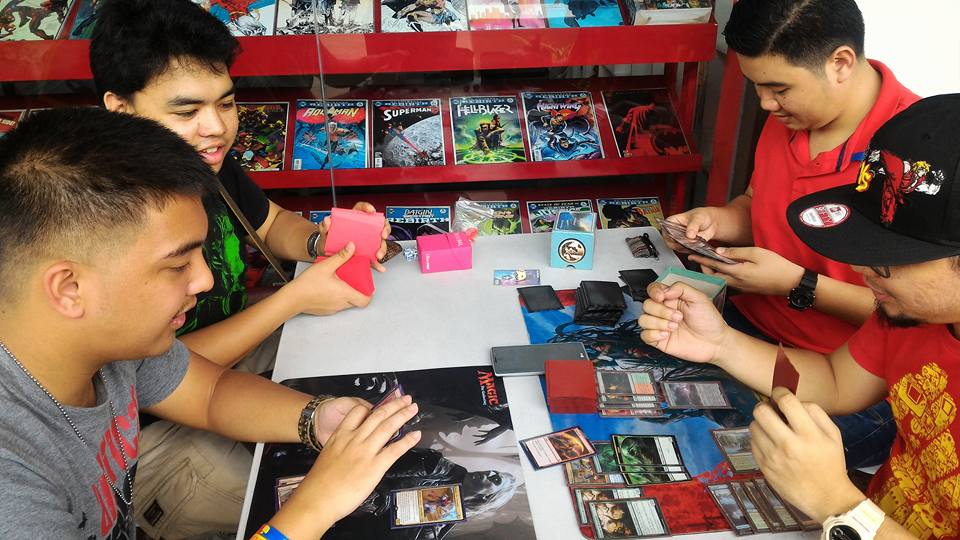
Welcoming new players to Magic: The Gathering (MTG) is essential for the growth of any local game store (LGS). With its complex mechanics and vast card pool, MTG can seem intimidating to beginners. However, by creating a supportive environment, your LGS can attract and retain new players, building a thriving community.
This guide explores actionable steps to make your store more beginner-friendly, ensuring newcomers feel comfortable and excited to join the world of MTG.
1. Create a Welcoming Environment
The atmosphere of your store should be inviting, particularly for new players. Friendly and knowledgeable staff can make a huge difference in creating a positive first impression. Ensure that employees are trained to greet visitors warmly, and encourage regulars to welcome newcomers. Consider these additional steps:
- Design a dedicated “New Player Zone” with clear signage.
- Display beginner-friendly decks, rules guides, and starter kits prominently.
- Keep your store clean, organized, and easy to navigate.
2. Offer Beginner Events and Leagues
Creating low-pressure events tailored for beginners is a fantastic way to engage new players. Focus on formats that are more accessible, such as:
- Learn-to-Play Nights: Host casual sessions where beginners can learn the basics of MTG with a friendly mentor. Have demo decks ready for use.
- Sealed or Draft Events: Limited formats like Sealed Deck or Draft allow players to compete on a more level playing field, minimizing the need for expensive, pre-built decks.
- Beginner Leagues: A slow-paced league where players gradually build their decks over a few weeks. Offer lower-cost entry fees and prize support based on participation rather than skill level. I have tried this before by providing a Standard Pauper format tournament for the new players, with free registration and they can borrow pre-made decks.
Promote these events heavily on social media and in-store, and encourage experienced players to participate as mentors.
3. Provide Pre-built Beginner Decks
Offering pre-constructed decks designed specifically for new players helps ease them into the game. Wizards of the Coast (MTG’s publisher) provides beginner products like Starter Decks or Planeswalker Decks, but your LGS can take extra steps by:
- Creating budget-friendly, pre-built decks in popular formats like Commander or Standard.
- Including detailed deck guides explaining strategies and synergies.
- Offering bundle discounts on beginner decks, playmats, and dice.
Providing easy access to these products helps lower the barrier to entry, making it less overwhelming for a newcomer to jump into the game.
4. Host Mentorship Programs
Pairing new players with experienced MTG veterans can create an invaluable learning experience. A mentorship program allows beginners to ask questions, get gameplay tips, and learn about deck-building strategies in a comfortable, non-judgmental setting. Consider the following:
- Mentorship Events: Host designated “mentor” events where experienced players are invited to teach beginners in a structured setting.
- Buddy System: Pair beginners with a regular store-goer who can guide them through their first few games and offer advice on improving their deck or strategies.
- Online Communities: Foster a supportive online space where new players can ask questions outside of store hours. Use platforms like Discord, where mentors can continue to offer advice.
Make the program fun by offering incentives for both mentors and new players, such as in-store credit, exclusive cards, or event discounts.
5. Simplify Game Resources
The rules of MTG can be dense for beginners, so simplifying resources is essential. Make sure the following are readily available:
- Quick-Start Guides: Condensed versions of the rulebook that focus on core mechanics. These should be visually engaging and easy to follow.
- Cheat Sheets: Provide simple reference cards explaining basic game terms, phases, and common mechanics. Keep these at play tables during events.
- How-To Videos: Play short, beginner-friendly tutorial videos on a screen in the store. Links to these videos can also be shared online for at-home learning.
Providing simplified learning tools helps new players feel more confident as they take their first steps into MTG.
6. Offer Reward Programs for New Players
New players are more likely to stay engaged if they feel rewarded for their efforts. Create an incentive system that recognizes their progress:
- New Player Punch Card: Each time a new player attends an event, they receive a stamp on a punch card. After a certain number of visits, offer a reward like a free booster pack or a discount on their next event.
- Exclusive New Player Events: After attending a certain number of beginner events, invite them to an “advanced beginner” event to reward their growth and help them transition to more competitive play.
By offering tangible rewards, new players will feel appreciated and motivated to continue participating in the store’s community.
Conclusion
Making your local game store more beginner-friendly is an investment in the long-term success of both the store and the game itself. By fostering a welcoming atmosphere, providing accessible learning resources, and creating engaging events for new players, your LGS can build a vibrant, inclusive MTG community. Remember, every new player starts somewhere—your store can be the place that transforms them into lifelong fans of Magic: The Gathering.
